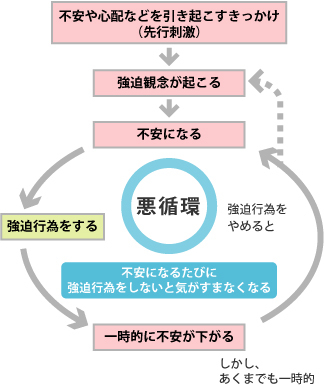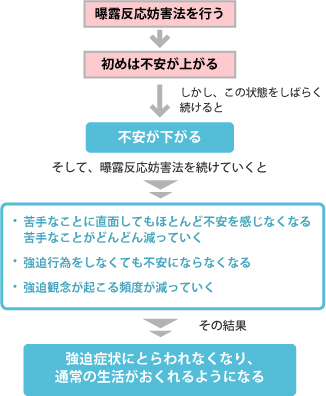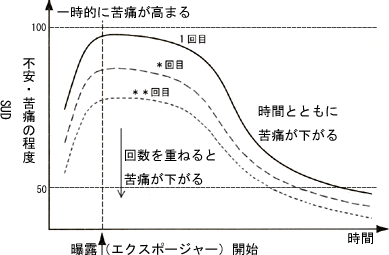マスコミの見方とプロレスの見方
大人になれば
どういう筋書きでショーを演じるのかという興味に変わる
相撲でも「がち」という一門もあるが
そうでない人達もいて
前の場所で貸しがあるから今場所は返してもらうはずとか
7勝7敗ならばたいていは勝つのだろうとか
そしてそれを、子供にはわからない程度に演じる
ーー
これと同じように現在のマスコミは、それを通して、
何をどのように歪めて報道しているのか
その背後にある勢力は何か
などを感じるためのものとなっている
脳血液関門の個体差
The Ten Essential Shared Capabilities A Framework for the Whole of the Mental Health Workforce
The Ten Essential Shared Capabilities for Mental Health Practice
Working in Partnership. Developing and maintaining constructive working relationships with service
users, carers, families, colleagues, lay people and wider community networks. Working positively with
any tensions created by conflicts of interest or aspiration that may arise between the partners in care.
Respecting Diversity. Working in partnership with service users, carers, families and colleagues to
provide care and interventions that not only make a positive difference but also do so in ways that
respect and value diversity including age, race, culture, disability, gender, spirituality and sexuality.
Practising Ethically. Recognising the rights and aspirations of service users and their families,
acknowledging power differentials and minimising them whenever possible. Providing treatment and
care that is accountable to service users and carers within the boundaries prescribed by national
(professional), legal and local codes of ethical practice.
Challenging Inequality. Addressing the causes and consequences of stigma, discrimination, social
inequality and exclusion on service users, carers and mental health services. Creating, developing or
maintaining valued social roles for people in the communities they come from.
Promoting Recovery. Working in partnership to provide care and treatment that enables service users
and carers to tackle mental health problems with hope and optimism and to work towards a valued life
style within and beyond the limits of any mental health problem.
Identifying People’s Needs and Strengths. Working in partnership to gather information to agree
health and social care needs in the context of the preferred lifestyle and aspirations of service users
their families, carers and friends.
Providing Service User Centred Care. Negotiating achievable and meaningful goals; primarily from
the perspective of service users and their families. Influencing and seeking the means to achieve these
goals and clarifying the responsibilities of the people who will provide any help that is needed, including
systematically evaluating outcomes and achievements.
Making a Difference. Facilitating access to and delivering the best quality, evidence-based, valuesbased health and social care interventions to meet the needs and aspirations of service users and their families and carers.
Promoting Safety and Positive Risk Taking. Empowering the person to decide the level of risk they
are prepared to take with their health and safety. This includes working with the tension between
promoting safety and positive risk taking, including assessing and dealing with possible risks for service users, carers, family members, and the wider public.
Personal Development and Learning. Keeping up-to-date with changes in practice and participating
in life-long learning, personal and professional development for one’s self and colleagues through
supervision, appraisal and reflective practice.
眼前の恐怖も、想像力の生みなす恐怖ほど恐ろしくはない (「マクベス」)
ーー
精神療法の根拠の一つがこれである。
桃山晴衣の端唄/梅は咲いたか Harue Momoyama/Ume wa saitaka
桃山晴衣の端唄/梅は咲いたか Harue Momoyama/Ume wa saitaka
YouTube
桃山晴衣 梁塵秘抄を語る
遊びをせんとや生まれけん/桃山晴衣 Harue Momoyama/ Was I born to play
YouTube
ーー
♪ 梅は咲いたか 桜はまだかいな 柳なよなよ風次第
山吹ゃ浮気で 色ばっかり しょんがいな~
♪ 梅にしようか 桜にしよかいな 色も緑の松ヶ枝に
梅と桜を 咲かせたい しょんがいな~
♪ 昨日 北風 今日は南風 明日は浮名の たつみ風
恋の風なら 色ばっかり しょんがいな~
♪ 柳橋から 小舟で急がせ 舟はゆらゆら 波次第
舟から上がって土手八町 吉原へご案内
♪ 桜さくらと 浮かれているわいな 弥生三月 花見月
あなたは花より 酒ばっかり しょんがいな~
♪ アサリ取れたか ハマグリまだかいな アワビくよくよ 片想い
サザエは悋気で 角ばっかり しょんがいな~
♪ 銀座八丁 行こうじゃないかいな 山の狐が 七化けて
黒い眉引く 袖を引く しょんがいな~
♪ 恋の浅草 二人で行こかいな 何を言問 都鳥
末は千鳥で 泪橋 しょんがいな~
大原富枝「婉という女」「正妻」
文章が全く古くないので驚く
昭和35年
婉という女(一)(二)(三)桃山晴衣 大原富枝 YouTubeにあり
http://www.youtube.com/watch?v=4CtIgxKzvFo
http://www.youtube.com/watch?v=rEF7cdxSsjk
http://www.youtube.com/watch?v=92WGjYzFzxc
http://www.youtube.com/watch?v=-s7yooQK_CM
http://www.youtube.com/watch?v=YkJ6t9AJyy8
映画『アトランティスのこころ』(原題: Hearts in Atlantis)
映画『アトランティスのこころ』(原題: Hearts in Atlantis)
アンソニー・ホプキンス出演
お母さん役のHope Davisはヒラリー・クリントン役をやったらちょうど良さそう
超能力とか少年期とかそんな話題
映画『幸せの1ページ』(原題:Nim's Island)ジョディ・フォスター
に登場するのは
ちょっと不潔恐怖症の冒険物語作家
ーー
科学者って、いいな
★うつで品川心療内科に通って3ヶ月までの本 電子出版★
付加して構成を見直しました
116ページ (Web閲覧)
608ページ (PDF)
http://p.booklog.jp/book/40509/read
→無料です
自分で電子出版するときのご参考になればいいと思いました
でも、これで無料で公開しているというのは
ブログやホームページと同じだと思うんですが
検索に引っかかりやすいとかなにか事情があるんでしょうか
課金システムがこれでうまくいくなら
その時点で手書きの手記を販売したいですね
ーー
以下の2つ、完成しました
http://p.booklog.jp/book/56587/read
http://p.booklog.jp/book/45710/read
ーーーーー
目次の一部
双極性障害について
第1章 気分障害の診断と記述
第2章 単極性うつ病性スペクトラム
第3章 双極性障害 ver2.0
第4章 双極スペクトラム
第5章 ヒポクラテス的精神薬理学に向けて
第6章 遺伝と環境
第7章 気分安定薬と何か。抗うつ剤とは何か。薬剤の分類と定義。
第8章 単極性うつ病治療の原則
第9章 モノアミンオキシダーゼ阻害薬と三環系抗うつ薬
第10章 非定型抗うつ薬
第11章 セロトニン再取り込み薬(SRIs)
第12章 治療抵抗性単極性うつ病の治療戦略
第13章 双極性障害治療一般原則
第14章 リチウム
第15章 標準抗てんかん薬
第16章 新規抗てんかん薬
第17章 非定型抗精神病薬
第18章 標準抗うつ薬
第19章 治療抵抗性双極性障害の治療戦略
第20章 ラピッド・サイクリング双極性障害
第21章 子どもについて:うつ病、躁病、ADHD
第22章 気分障害に対する精神療法
第23章 高齢者
第24章 統合失調感情障害という難問
第25章 気分障害の診察のポイント
第26章 家族のために:双極性障害を抱える患者を家族としてどう援助するか
第27章 双極性障害診断スケール 双極性障害臨床評価ガイド
パーソナリティ障害について
第0章 パーソナリティ障害 はじめに
第1章 パーソナリティ障害 総論
第2章 妄想性パーソナリティ障害 Paranoid Personality Disorder PPD
第3章 スキゾイド(シゾイド)パーソナリィ障害 Schizoid Personality Disorder(SPD)
第4章 反社会性パーソナリィ障害 Antisocial パーソナリィ障害(APD)
第5章 境界性パーソナリティ障害(BPD)
第6章 演技性パーソナリティ障害(HPD)
第7章 自己愛性パーソナリティ障害(NPD)
第8章 回避性パーソナリティ障害(APD)
第9章 依存性パーソナリティ障害(DPD)
第10章 強迫性パーソナリティ障害(OCPD)
第11章 特定不能のパーソナリティ障害(PDNOS)
第12章 スキゾタイパル(シゾタイパル)パーソナリティ障害(SPD)
第13章 受動攻撃性パーソナリティ障害(PAPD)
第14章 自己敗北型パーソナリティ障害(SdPD)
第15章 パーソナリティ障害と大うつ病
第16章 パーソナリティ障害と双極性障害
第17章 パーソナリティ障害とパニック発作
第18章 パーソナリティ障害とシゾフレニー
第19章 パーソナリティ障害と強迫性障害(OCD)
第20章 パーソナリティ障害とADHD
第21章 パーソナリティ障害と認知症
第22章 パーソナリティ障害と摂食障害
第23章 クラスターAの治療の手がかり
第24章 クラスターBの治療の手がかり
第25章 クラスターCの治療の手がかり
第26章 パーソナリティ障害と性別について
第27章 パーソナリティ障害と文化要因について
第28章 パーソナリティ障害と物質乱用
第29章 パーソナリティ障害、PTSD、身体表現性障害
第30章 パーソナリティ障害と身体医学的疾患
第31章 ディメンショナル・モデル
第32章 いったいパーソナリティ障害患者は変わるのだろうか?
2012年12月選挙の争点
何を争って選挙をするんだっけ?
と考えなおしてみると
消費税・・・マスコミはもう「消費税を上げる必要については理解しています」という一般市民の声しか流さない。決着済み。
沖縄基地・・・マスコミはもう放送時間を割り当てず。結論は出ている。
尖閣問題・・・石原も替わり中国首脳も替わり、安倍、石破、前原に有利な問題。しかし石原の責任はどうなんだという話になるのであまり取り上げない。
被災地復興・原発問題・・・結局利権問題になってしまっているが、復興は促進しなければならないのは当然だし、原発は2030年には忘れているだろう。どちらでも大差なし。
TPP問題・・・これは近い将来のことで参加とか不参加とか国益を損なうなら絶対反対とか議論になる可能性がある。
しかも各政党内で一致していない。
ねじれをすっきりさせることができる可能性がある。政治勢力一部再編の可能性。
しかし、結論はアメリカの方針で決まっている。
反対というスタンスでアメリカ追随するか、賛成というスタンスでアメリカ追随するか、その違いしかない。
実質的な違いはなく、しかし「言葉の綾」に投票する、というのは誠に日本的なよい風俗習慣である。
TPPを争点に無駄な時間をすごすのがよい。
経済成長問題・・・国から仕事をもらうよりも、国からお金をもらったほうがいいと考える人が多いのでどう考えても無駄。最近安倍氏が経済政策について不安定な発言をしているが、政権を取ればまわりできちんと選挙とは違うことを実行するだろうから心配はない。どんどんお金を使って景気よくしようという話にしかならないだろう。
小沢裁判問題・・・マスコミにも跳ね返る危ない問題なので口を閉ざす。
復興第一、領土は守る、景気は良くする、基地を沖縄に押し付けない、消費増税の前にシロアリ退治(天下り利権問題、財政スリム化)、ここまでは違いがありようがない。
TPPだけは、言葉の綾でそれぞれの態度を取ることができるだろう。しかし結論は同じである。
絵を描く人と絵が分かる人
絵を描けるけれども絵が分からない人・・・奇跡
絵が描けないが絵が分かる人・・・自分は絵が好きだと思っているよい人
絵が描けて絵が分かる人・・・絵が本当に分かるなら自分の絵なんか意味が無いと分かるのではないか
ーーー
絵を描けなくて絵が分からない人をも絵かきとして容認しているのが現代である
おかしな教育制度とコネ社会の結果である
(もちろん、絵の世界のことではありません。比喩です。)
脳に直接データを書き込む問題
脳に直接データを書き込む
現在我々が家庭で使っているPCの仕組みの延長と考えれば
簡単にイメージできるが
ハードがあれば、そこにOSをインストールできるし、アプリケーションもデータも書き込める
その場合、五感で感じる部分については直接入力すればいいので
いまでもイメージしやすいが
「体験」ではなく、その解釈としての「感情」「認知」を書き込むことがどのようにして可能だろうか
という問題はある
また、五感に入力するということで考えれば
空間体験は問題ないものの、
時間体験については圧縮できるのかどうかという問題がある
音楽を圧縮したデータで体験するということが
一部の特別な人以外でどのように可能だろうか
いとぐちは夢ではないかと思う
我々は夢のなかでほぼ一瞬のうちにある程度長い時間を経験したりしているように思う
これをヒントに考えれば、時間体験データの圧縮入力もできそうな気がする
もちろん、最終的なデータ形式が理解できていれば
そのように書き込めばいいだけなので
長老の体験を赤ん坊に移植することができて
世界は大変住みやすくなるだろう
(そうかな?)
ーー
脳に直接データを書き込むと考えると
書き込む側と
書き込まれる側が分離するので
それは大変に嫌な社会だと思う
ーーー
昔からある比喩で、
脳とPCを並べて考え、
故障の部位で分類し、
ハード、OS、アプリ、データなどと分類する
PTSDなどはデータ部分を書き換えればいいらしい
シゾフレニーはハード部分に問題があり、そこに起因して、OSにも、アプリにも、データにも、影響が及ぶ
(現在我々が使ううつという言葉で考えるとして)
うつはハード部分に起因するうつもあり、データ部分に起因するうつもあり、さまざまという様相だろう
ーー
問題は客観世界(それがあるとして)の状態と
脳の状態が相関していること
しかも脳は客観世界の一部であること
などが私にとっての問題である
ーー
他人の脳が客観世界の一部であることは問題ない
そしてそれと同じように自分の脳も客観世界の一部に違いないと推論するに決まっている
しかしながらその自分の脳がこの客観世界を感知して解釈しているのであって
そこを単純に「大きな誤解と単純化があるだけだ」と結論することもできるのだが
そうでばかりもないような気もする
うちのおばあちゃんの脳は単純であり
世界は自分にはわからない程度に複雑であると割り切っている
それぞれの程度でそれが成立しているということでいいのだろう
それで何も問題はないような気もする
ーー
一番単純な脳を持っていたおばあちゃんが一番幸せに生きたような気がする
Why don't more people exercise?
音楽に親しむ時間を増やしたり
いろいろな微調整の方法があるのだが
おおむね、「そんな時間があったら仕事がある」という理由で
後回しになる
水泳すれば随分気分が変わることは確実だし
大画面でオーケストラ演奏を視聴したりすればこれも随分と気分が変わることは確実だと思う
しかし、「時間がない」「もっと優先しなければならないものがある」ということで
いつでも後回しになる
Hypomania/Mania Symptom Checklist (HCL-32)
コンピューターを用いてうつ状態の青年に実施した認知行動療法
Current psychotherapy

- 作者: Raymond J. Corsini
- 出版社/メーカー: Brooks/Cole Pub Co
- 発売日: 2013/02/03
- メディア: ペーパーバック

Current Psychotherapies (Psy 641 Introduction to Psychotherapy)
- 作者:
- 出版社/メーカー: Brooks/Cole Pub Co
- 発売日: 2010/02/12
- メディア: ペーパーバック
Unhinged: The Trouble with Psychiatry - A Doctor's Revelations about a Profession in Crisis

Unhinged: The Trouble with Psychiatry - A Doctor's Revelations about a Profession in Crisis
- 作者: Daniel Carlat
- 出版社/メーカー: Free Press
- 発売日: 2010/05/18
- メディア: ハードカバー
精神科医は精神薬理学者になって
心理学はサイコロジストに任せるようになった
understanding the mind
はどうしたのか
というような書き出し
自閉性障害、発達障害、アスペルガー障害、高機能自閉症(成人と小児)
このあたりの話題は最近はとても多く
たとえばうつ病と診断したとして、その背景に発達の問題が「薄く」関係していると
診断される場合も少なくない。
アスペルガー障害と高機能自閉症の違いについても
色々な考え方はあると思うので
まだ留保したままにしたい
小児の時代からの脳の問題がこんなに少ないはずはないのであって
微細に見ればいくらでも問題はあるし
しかしまた実際的には間に合うでしょうといえば、それも現実である
うつ状態について
initial common pathway としてのうつ状態がある
たとえば自閉性障害の場合にうつ状態を伴うが、
それは生きにくさに伴う結果としてのうつ状態の可能性もあるし
どのような病的状態であっても最初の時期には
不眠、不安、抑うつ、食欲不振などが共通して現れることの結果である可能性もある
大学新規設置問題
大学数が日本では700を超えて800に近い数字らしい
少子化で騒いでいる時に
政府がいくらでも補助金を出すのもどうかしている
それぞれが自由競争で商売をしているというなら別だが
補助金について
学校教育は今や農業と並ぶ補助金産業であり、今年度は国立大学法人と私立大学に合計1兆4800億円の補助金が支給されている
との紹介もある
「大学院重点化」は無名大学から有名大学の大学院に入る「学歴ロンダリング」の温床になり、法科大学院は廃校が相次いでバブルの崩壊が始まっている
という問題もある
指摘によれば、新規に四年制大学になっても
収入は補助金
生徒は外国人、しかも彼らはいきなりアルバイト漬け
勉強せずに卒業
それだと就職できず行くところがないので大学院に進学
教師は元マスコミ関係の有名人とかで
事務は縁故採用と天下り
地方にとっては数少ない税金事業なのだが
弱点は子供の数以上に定員があることだ
若い時間を無駄に過ごしてよいのかという指摘もある
学力問題とか教育問題ではなくて
補助金問題が本質のようだ
患者の語ることはどの程度、人、時間、場面に依存しているのか
患者の語ることはどの程度、人、時間、場面に依存しているのか
依存しすぎるのも不自然だし
全く影響されないのも不自然だ
ーー
鮮やかな例としては
治療者が変わると全く別の面を見せることがある
この間までのは何だったのかと思うけれど
多面的なものであるというのが真実なのだろう
ーー
問題は、治療者は自分を取り替えることは難しいので、
患者の多面性を把握できないでいることが起こりうることである
特に密室での面接で完了してしまうと
自分に見えたものだけが全部になる危険がある





